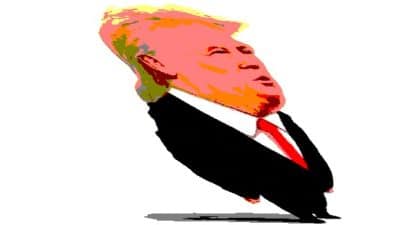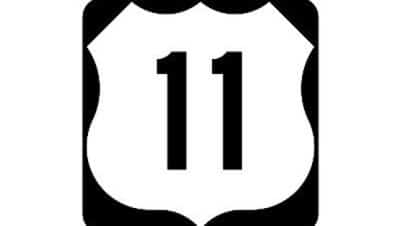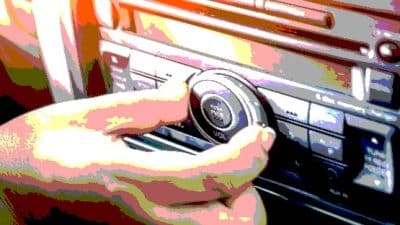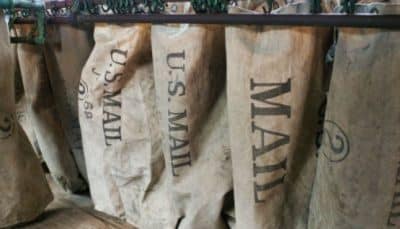COACH LONDON: We’re coming off a disappointing loss to Georgia Tech, very good Georgia Tech team. Had a chance to go back and look at a couple things that stood out, and some of the areas that stood out is the four turnovers in the first half and not having an opportunity to score obviously cost us. The first drive, only took a couple plays for them. It took us a while to get acclimated to the speed of the game in terms of the option assignments. That took us some time to get used to that and get acclimated, and we played well in some spots. Again, when you have five turnovers, we’re an option team, a team that’s No. 2 in the country and leading time of possession and you have an opportunity to get the ball back that many times, I thought we did a good job on that.

I’ll take any questions.
Q. Clemson is an ACC rival but you haven’t played them yet since you have been here. What do you see?
COACH LONDON: You see a lot of carryover in terms of other teams that they play have been common opponents, and it’s been quite a while since I personally have had a chance to see them play in person. But there’s a lot of guys on our team that know a lot of players on their team because of the regional recruiting flavor, and obviously Tajh Boyd being a Phoebus Phantom product and a few guys on our team knowing him, so there’s a lot of familiarity from guys on our team knowing players on their team, knowing particular players on their team.
w with:
But again, they come in as a highly rated football team, one of the top teams in the ACC, and a tremendous challenge for us but one of the challenges that we embrace because we’re at home and we get a chance to have a really good team come in here and play the calf ears.
Q. In terms of the athletic ability of Clemson, are they like Oregon? Did that prepare you?
COACH LONDON: I’ll tell you, they are very fast. Sammy Watkins, there’s a lot of things that ‑‑ a lot of players, a lot of things that they do to stretch the field and utilize that vertical talent, and it’s another scheme and system that’s been employed for a while with a veteran quarterback that you always see some commonality with the speed of the game in which they play, also having some athletic people receiving the ball or running the ball. I would say they are ‑‑ I would say they’re not as fast as Oregon, but they’re comparable in terms of the athletic skill and what their offense allows them to do with those players.
Q. You mentioned pace of the game a little earlier. Clemson is a tick slower than Oregon if you calculate plays from the time of possession but not by much. Having played Oregon, do you think that gives you at least a heads up as to what that pace is going to be like come Saturday?
COACH LONDON: You know, I believe that they incorporated a lot of things that we’ve seen from some of our opponents that we’ve played this year in terms of not only the type of plays but, you’re right, the tempo of the play, the misdirections, the read aspects of it, allowing the quarterback to have his opportunities to run or throw. So they have their own style, but at the same time we’ve seen other teams that we’ve played, there’s a little bit of everything that we’ve seen from what they go vertical and use their speed – they are explosive.
So those are some of the things during the course of practice this week, getting back to that tempo, getting back to being assignment oriented, because again, it’s another way, like the option team, if you’re not in the right spot, you’re not guarding the vertical field or horizontal field correctly, they know how to exploit it, and that’s our challenge for this week.
Q. Doug Rhoads indicated he has spoken to you. Did you get any satisfaction about those missing five seconds or the five seconds that were run off at the end of the first half the other day?
COACH LONDON: Let me say this: That, again, as I prefaced yesterday, that situation, with other situations that occurred in the game, the turnovers, things like that, is something that happened. When I called time out with 11 seconds left on the clock, the communication in that getting done and getting to the correct people, there was a delay in that for whatever reason. And let’s just say that Doug and I have talked, and I’ll just leave it at that.
Q. If you’d had 11 seconds, would you have been more inclined to pass the ball there?
COACH LONDON: It gives you several options. It gives you options, maybe two passes or a run and a pass, whatever it may be. The more time on the clock that you have in that situation gives you opportunities to ‑‑ to have opportunities to score. The ball was on the 1‑yard line, and as I said, that was a part of the game that ended the half with no points, but as I said in the first half, we had four turnovers and didn’t capitalize on that, and some other opportunities throughout the game.
But that’s part of the game, and I’ve had the communication with the ACC office, and I’ll just leave it at that.
Q. You mentioned the takeaways. You guys already surpassed last season. But have scored only 13 points on 15 forced turnovers. Is there anything to that? It’s kind of an odd trend.
COACH LONDON: Well, not from the lack of trying, more so the lack of executing to get it done. You’re right, there’s been a lack of scoring on opportunities off turnovers.
It is something we continue to keep discussing and talking about, but it is a statistic that has to get turned to an advantage for us, because if not, then you’ll be in games and not have the opportunity to win games – because if you don’t score when you get the ball back, then that causes issues.
Q. I think Kevin Parks could be described as a power back. Is his 205 pounds a disadvantage for him in the short yardage?
COACH LONDON: 205, I don’t know if he weighs 205. That’s probably what it says on his bio there. But I think the biggest thing, one of the things, go back and look at third down and one to three yards, we’re second in the ACC of 14 teams in success percentage. I think it’s like 75, 74 percent. So those times that you don’t get it obviously are those situations where at the end of the game or at the end of a half or something like that, but when you look at overall, that we’ve been successful in converting those things, and it is frustrating that in the big times or the big moments that it hasn’t occurred for us.
And to Kevin’s size and ability, he’s done a pretty nice job running the ball. You’d like to have, and one of the ways you address that is through recruiting or perhaps through players that are on your team now, and look at some of the fullback, linebacker type body types and think about perhaps making a move there.
But that is part of it, having an opportunity to have a guy that can get vertical and get those scores, but Kevin has been productive for us.
Q. Specifically to the offensive line, you have a true freshman at right tackle. How does Smith grade out?
COACH LONDON: It wasn’t Eric’s best game, but it was a game that he was very competitive in. Obviously Attaochu is a seasoned veteran player, and so you try to do some things with Eric, perhaps try to have a fullback chip and block, those types of things, and it’s a learning curve. He’s getting the best type of rushes that are out there. There’s inside moves, there’s spin moves, there’s speed moves, and for a true freshman, he’s doing a nice job. He’s going to be a great player before he leaves here. But you want the here and now in a game to happen for you, and we’ll keep trying to find ways to help Eric, and sometimes Eric does it on his own because there were a couple blocks that he did an outstanding job on. He understands where he is and where he needs to be, and we have to help him in that regard, too.
Q. At this point of the year, you have some individuals with some pretty good numbers. How difficult is that when you have some pretty good individual success and then the team success just isn’t there?
COACH LONDON: I believe with their teammates, and the biggest thing of the note is, hey, listen, individuals keep playing better, and at time it brings others along with you because they see if Brent Urban plays better, then David Dean can raise his level of play better. I think it’s indicative of the receiver situation where we switched receivers and Darius Jennings and Tim Smith ‑‑ they could have packed it in, but they decided to turn the other way and practice and plan and play hard, and they come out having one of the better productive games. So we’ll keep asking individuals to get better because if an individual gets better, then the unit gets better, then the team gets better, and that’s the goal.
Q. What are your impressions of Clemson’s offense?
COACH LONDON: Well, I’ll tell you, you watch the games that they play, and you see a lot of production, and that was asked before. Here’s a veteran quarterback that’s running a style of offense that highlights the athleticism of their receivers, Watkins, their running back, McDowell, Humphries, and they just do a tremendous job with that. Tajh, I’ve known him for a long time coming out of Phoebus High School, and he’s very mature, very focused, and now one of the leaders on that Clemson team. You hear Coach Swinney talk about Tajh and those leadership capabilities, it’s no wonder that they’re playing well because he’s one of the main focal points of that team, and then as he plays, the rest of the team plays.
Very dynamic, exciting offense. They capitalize on the vertical speed that they have with Watkins and some other players, and then Tajh being able to run the ball and throw the ball with accuracy has been something that’s made them a serious weapon to contend with.
Q. Do you worry at all about the homecoming factor for him, playing an hour away from where he grew up, just the emotions of that?
COACH LONDON: I’m quite sure for him there will be a support network that’s coming up to watch him. I’m quite sure that support network goes and follows him wherever he plays, whether it’s down in South Carolina or up this way. But they’re players. There are always personal things that they take into account when they’re playing particular teams. It could be their rival. It could be a player that they played against. It could be family members, or whatever it may be. And I know this is the second week they’ll be traveling this way. They were just up this way last Saturday, this past Saturday, and they’ll be up here again.
But I think he’s enough of a competitor that wherever he plays, home or away, it doesn’t matter, that he wants to play his best game.
Q. Anthony Harris, is there anything in particular that you’ve been really impressed about with him?
COACH LONDON: I think the biggest thing with him ‑‑ I know the biggest thing with him is that having that maturation process and then the experience that he’s gained from that last season going into this season, he is one of the toughest players on our team. He gets guys lined up. He’s involved with a lot of tackles. He just does a great job just running the defense along with ‑‑ our linebacker is a linebacker defense in terms of the calls, but you have to communicate with the safety, and Anthony does a great job disseminating the information to the corners and playing the leverage and playing the coverages that are called for. Very proud of the way he’s playing, and we need him to continue to play well for us.
Q. O’Brien and Tenuta got an annual dose of Clemson at NC State – is that just a level of comfort for you?
COACH LONDON: You know, to a certain extent. I mean, you rely on a staff that has had experience dealing with different things and different people and situations, and that’s always important when they can impart some of that, what they’ve learned and what they know, and share it with the staff and share it with me. And again, ‑‑ when you’re talking about a staff that has experience, and we’re trying to put the schemes and the systems together to be successful, I mean, there is some ‑‑ there are some things that you wish you could have done right away and see the fruits of a lot of experience like that.
But we are where we are now, and let’s continue to get better in that aspect. But having veteran coaches is definitely a plus.
Q. When was the decision to go to Jennings and Smith made, the day after the Duke game or during the week of practice or somewhere in between?
COACH LONDON: I would say during the week of practice. Tim had his best week of practice, and Darius, we kind of moved him to the inside receiver, kind of a slot receiver instead of the X or the Z. He’s become more accustomed to being the inside guy, and during the course of the game, Darius made some catches which required him to keep playing. As I said, Tim had his best week of practice, very focused, and it wasn’t surprising that some of the catches and things that he did, some of the blocks that he had out there on film was indicative of the work ethic during the week.
The question was asked about that’s how we must continue to get better as a team is you can’t feel complacent. You can’t feel that you just ‑‑ you’re playing because what are you playing for? You’ve got to find a reason why you’re playing, and those two decided that they were going to turn up their efforts and their energies, and the game reflected that. And now they’re the model of it, and we want other guys to follow up with that, as well.
Q. In the second half David hit Tim in a tight window on the sidelines, was that one of the best throws you have seen David make?
COACH LONDON: Part of the maturation process for David has been to always throw when you see a guy that’s open because by the time with the way corners and safeties play now, by the time you see that he’s open the defender is able to make it back to knock down the ball.
David made some great throws. He made some very accurate throws during the course of the game, and you just keep hoping that that maturation process with him continues, continues on, because we know we play enough quarterbacks on other teams that are veteran quarterbacks, and you see that they’ve had the ability to be with schemes and systems for a while, how good they are, I believe David can do that. He’s doing that, but again, it’s the processes as we going along through the season. He is going to again have to have his best game to date this Saturday against a very good Clemson team that is one of the top defenses in the ACC and in the country.
Q. Just a lineup question. The middle linebacker Henry or Daquan?
COACH LONDON: Yeah, we play personnel groupings where you call nickel or dime, whatever you call those groupings, and during the course of the game we had Henry go out and Romero went in, started the game with Bradshaw and Max Valles. So those personnel groupings, particularly against Clemson because of what they do, as well, you’ll see a variation of linebackers in, so Romero will play some middle linebacker and Henry will be out, and you’ll have Bradshaw followed on the end. And then we’ll do some things where Henry will be in the middle and perhaps Romero will be one of the outside guys. So again, it’s a personnel grouping.
Q. So its not anything Henry did?
COACH LONDON: No, it’s just kind of a package that you play during the course of the game.
Q. With respect to Clemson’s recent rise, do you see a template for how you could change things here with recruiting and upgrade facilities? Do you see any similarities in their rise and what you are trying to do here?.
COACH LONDON: I know Dabo Swinney personally, and I know he’s a man of strong character and faith. I know he believes in recruiting the right type of young man. I know he believes in the process of how you build a team. And I believe the same things, very similar, in that approach. I know that it takes a couple good recruiting classes, and it takes some standout players to really step out to the forefront and play and produce, and sticking to the process of that. He’s done a great job there of being who he is and as you said, setting a template as far as what they are and what they do, and I’m excited about the opportunity, as well, through all those things, through staffs, to build a program that should win and is one that the fans and people can be proud of in terms of supporting.
Q. Clemson still leads the nation in quarterback sacks. Beasley, what kind of problems does he create?
COACH LONDON: You’re right, they are No. 1 in the country, averaging almost four sacks a game. He a tremendous pass rusher, and he’s so athletic. He’s got tremendous bend, and he’s powerful, too.
In regards to the protection, the question was asked about Eric Smith, how do you help a guy like Eric Smith. Well, there’s a few things that you can do without trying to mention them right now, but obviously you can give Eric some help with a back that’s chipping before he releases. You can slide protect to Beasley. But you’ve seen other teams try to do so many different things to him that he still just is – a lot of it is just determination, and you see an unbelievable determination that he has, that he gives, in getting to the quarterback.
A lot of things people try to do to him and he still ends up getting to the quarterback, but he’s an excellent football player.
Q. As a follow‑up to the template question, it’s probably frustrating for fans of Virginia teams that you’ve got great talent that goes out of state. Do you see that changing at all recently in recruiting, and is it necessary for this program to progress to keep those players here?
COACH LONDON: It’s always important for schools, particularly this school, is continue the strong message of opportunity, opportunity in the classroom, opportunity on the field, opportunity in the community, whatever it is. But these young players, these players out here would like to see their in‑state schools do well, play well. And it’s important that we do, but it’s important that as you attract these young men, you attract the right kind of young men and the reasons they want to come to a university, and through relationships, through opportunities, through the education that this school provides, I mean, there’s so many factors, through the success of other players that are already here, that’s important.
You know, players that you get change the fortunes of your teams, and if you can get some special players, as we know, both schools, this school and the other school, have had players that have done significant things at their schools, and it has led other in‑state players to say, you know what, I want to go there because of that. It’s important that a Tra’ Nicholson or Eli Harold, that they do well to attract other in‑state players that are good players at other schools outside of the state or looking at. So that is very important.
Q. What do you think about the way your special teams has been playing?
COACH LONDON: Well, I do know that this game was not the best special teams performance that we’ve given. Obviously when you have a kickoff return that goes almost 60 something yards and you provide a short field for an option team that will grind up the ball, that’s not good enough. When you have a returner in Darius Jennings that was doing a pretty nice job in the return game not having an opportunity to extend the field because of a block or two that was missed, that’s not good enough.
So it’s definitely important to make sure that one of the units that has to do well in order for this team to do well is the special teams unit, and as I said, this game wasn’t the best game, wasn’t a game that was ‑‑ we talked about this game having to have a special teams play or plays in it to help us win, and we did not get that, and we need to get that and we need to get better at that.
Q. What is your take on the Pheobus vs. Hampton rivalry?
COACH LONDON: Well, I also went three years to Taft High School, too, and graduated Bethel High School. But those games down there, as any high school young man can remember, even to the days of whether it was Taft and York or Bethel and Hampton, but Hampton and Phoebus for a long time was a game that decided like who was the best of the best down there, and I understand Phoebus is doing a nice job right now.
But it’ll be crowded. The atmosphere down there will be electric. I mean, that’s the purity of football is those high school games that family members and the band and everything is going on with the excitement of seeing young men play, and that’s what it’s all about. I’m quite sure that ‑‑ I don’t know where they’re playing, if they’re playing at Todd Stadium or ‑‑ they’ve already played?
Q. What about Watford and Boyd?
COACH LONDON: Oh, you’re talking about those guys? I started reminiscing about back in the day, those games. I know they know each other, obviously because that’s your area. That’s your home. And the question was asked would Tajh have any extra incentive in playing. You could ask the same thing about David because Tajh has been noted as one of the best quarterbacks in the country. We’re talking about David improving and getting to a level where he’s as competitive and he’s as explosive in everything that he does, as well and I know that it’ll be exciting two the two of them probably to meet at pregame, and they’ll hug after the game, but they’ll be competing against each other because they’ll want to come out of the game as the best quarterback on that day.










